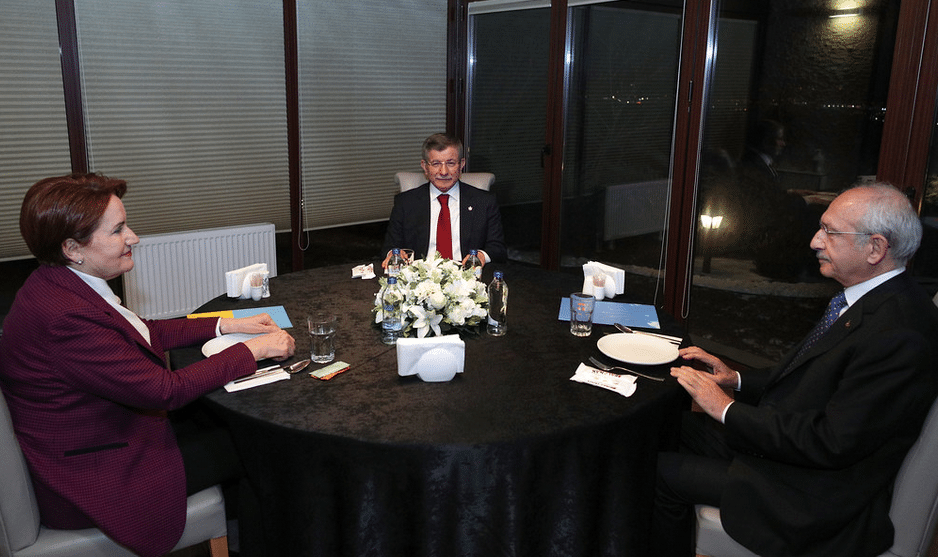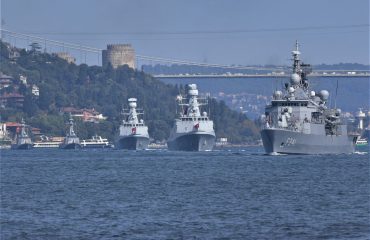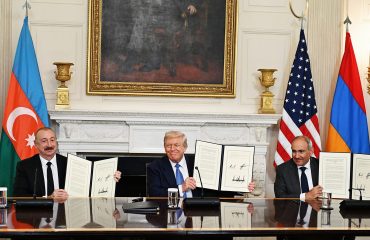

“As the opposition, we must be prepared for anything,” said Future Party (FP) leader Ahmet Davutoğlu on the phone, pointing at ruling Justice and Development Party (AKP) and Nationalist Movement Party’s (MHP) “People Alliance” which reiterate their objection to the early election call of the opposition debating that the election will be held on time, in 2023.
“Now, both (AKP and MHP) say that the election will be held on scheduled time. But if MHP leader Devlet Bahçeli wakes up one morning and says ‘early election’, the opposition must be prepared in every way. Even if it will be held on scheduled time. That’s what I told other leaders,” he added.
He referred to the dinner meeting with CHP leader Kemal Kılıçdaroğlu and IYI Party leader Meral Akşener on January 20, which stirred a debate within political lobbies. After meeting with both leaders individually, the Future Party leader requested a meeting with the two leaders. The meal was hosted by Çankaya Mayor Alper Taşdelen, and was held at the municipality’s Ahlatlıbel social facilities.
MHP leader Devlet Bahçeli has such a reputation in politics. During the DSP-MHP-ANAP coalition government, struggling with the economic crisis in 2002, he demanded an early election while he was the deputy prime minister. His call brought the AKP to power with the majority seat in the parliament. Since then, Turkey has gone to the polls whenever Bahçeli called for an election or a referendum, including the 2015 elections and the 2019 Istanbul re-election.
It is not just the Bahçeli-factor
“The opposition must be prepared,” says Davutoğlu, whether or not Bahçeli, who has played a role in Turkey’s going to the election for the last 20 years, will make a move that would corner everybody.
“Whether the election will be early or held on time, the opposition needs to be prepared as if it is going to happen tomorrow. They need to work together. That work should include drafting a new Constitution based on the parliamentary system, nominating a joint Presidential candidate if possible, the policies to be followed if the election is won, and who will do what. It would be beneficial for us debating these in advance and to determine how the process will be carried out,” he added.
The Future Party is not yet part of the Nation Alliance. Davutoğlu and DEVA Party leader Ali Babacan, who also separated his path from President Tayyip Erdoğan’s AKP like him, said that more formal cooperation is needed before the election. Does Davutoğlu mean that the opposition bloc should announce some coalition protocol or roadmap before the election?
The photograph of the three leaders
While answering this question, Davutoğlu touches on another issue in the opposition bloc – more formal, albeit present.
“Let’s not call it a coalition protocol; it is a post-election issue. However, more coordinated cooperation and operation are needed. Look, there are currently three parties in the Nation Alliance: CHP, İYİ Party and Democrat Party. Mr Temel Karamollaoğlu, [Felicity Party] has already said that the alliance was valid for the last election, and his party is not in the alliance at the moment. But even it was a part of the Nation Alliance, there was not a single photo of all of them together. There were photographs of two. At least, the leaders should be able to come together debating the Constitution,” he said.
According to Davutoğlu, the issue is not limited to posing for photographs together. The locomotive of the opposition train is Kılıçdaroğlu and Akşener’s cooperation that has survived until now, despite the attempts of Erdoğan and Bahçeli to bring discord through the outlawed Kurdistan Worker’s Party (PKK). Davutoğlu wants to be an equal partner in all decisions if the Future Party is to be included in the Nation Alliance.
However, there are critical issues in terms of Davutoğlu, the opposition and Turkey’s political future.
Will they proceed discussing on retail or wholesale?
Davutoğlu tends to agree on all issues first and proceed debating accordingly. It is not in vain that Kılıçdaroğlu said the new Constitution draft, on which the commission has been working for weeks, is waiting for the approval of the leaders of the parties. He says it’s not the CHP that’s holding it back. Davutoğlu, on the other hand, is in insecurity because, for example, if they announce that they have agreed on the Constitution, he might be in a difficult position in selecting the presidential candidate.
For example, Babacan also favors step-by-step retail progress. “Let’s agree on the Constitution, let’s decide on the economy program first, let’s go in order,” he says. Davutoğlu takes a more comprehensive, wholesale, but politically risky view; at least, that’s how it’s perceived.
Davutoğlu does not express this clearly, but he still has the concern: “How do I explain to my voters to stand side by side with the CHP?”. If he is not considering returning to the AKP under Erdogan’s scorn, he must also be calculating the alternative political cost of staying out of the opposition bloc. His desire to meet with Kılıçdaroğlu and Akşener is positive in this regard; of course, talking is better than not talking.
Because at the end of the day, there is also a risk of being accused of staying both in the opposition and outside of the opposition bloc and causing Erdoğan to retain his power.
What about debating about the joint economy program?
A sentence in the news of Kılıçdaoğlu’s meeting with the EU Ambassadors last week echoed in the political lobbies. When EU Ambassadors asked whether the six opposition parties that are in coopearation for constitutional draft, would also debating on an economy program, I wrote that the answer of Kılıçdaroğlu was as follows: “He told the EU Ambassadors that it was a work initiated by Ali Babacan’s DEVA Party and that they would start working on this draft shortly.”
The follow-up information is a little more detailed. CHP, İYİ Party, Democrat Party and Future Party have been carrying out a study, albeit irregularly, on economic issues. The relations are managed by Faik Öztrak from CHP, Erhan Usta from IYI, Kerim Rota from Future and Bülent Şahinalp from DP. However, the DEVA Party and the Felicity Party also have separate economic program studies. What Kılıçdaroğlu indicated was that separate studies.
It’s not enough to say “Everything will be fine”
I asked the subject to Öztrak.
“The necessity of the opposition parties to prepare a joint economic program clearly stands out as an important demand from our base throughout Turkey,” he said. “We are asked what we say jointly, not the as A, B, C party separately. We can start debating for the joint economic policy shortly with the decision of the leaders,” he added.
The issue of the joint economy program, which is an important issue not just for ambassadors but also for domestic and foreign investors -at least as important as the work of the Constitution- is now at the hand of the leaders of the opposition bloc.
It is not enough to say, “Everything will be fine.” Those interested in Turkey inside and outside ask, “How?”
Meanwhile, Kılıçdaroğlu is expected to be in Diyarbakır on January 27 (unless postponed due to weather conditions) with a comprehensive program. The CHP leader stopped by Diyarbakır on his return from Şanlıurfa in December but postponed his visit with the promise of a better-prepared program.
It is clear that Kurdish voter preferences will play a key role in the upcoming election, as well as the economic program.
As Davutoğlu said, whether Bahçeli says early election in one morning or not.


